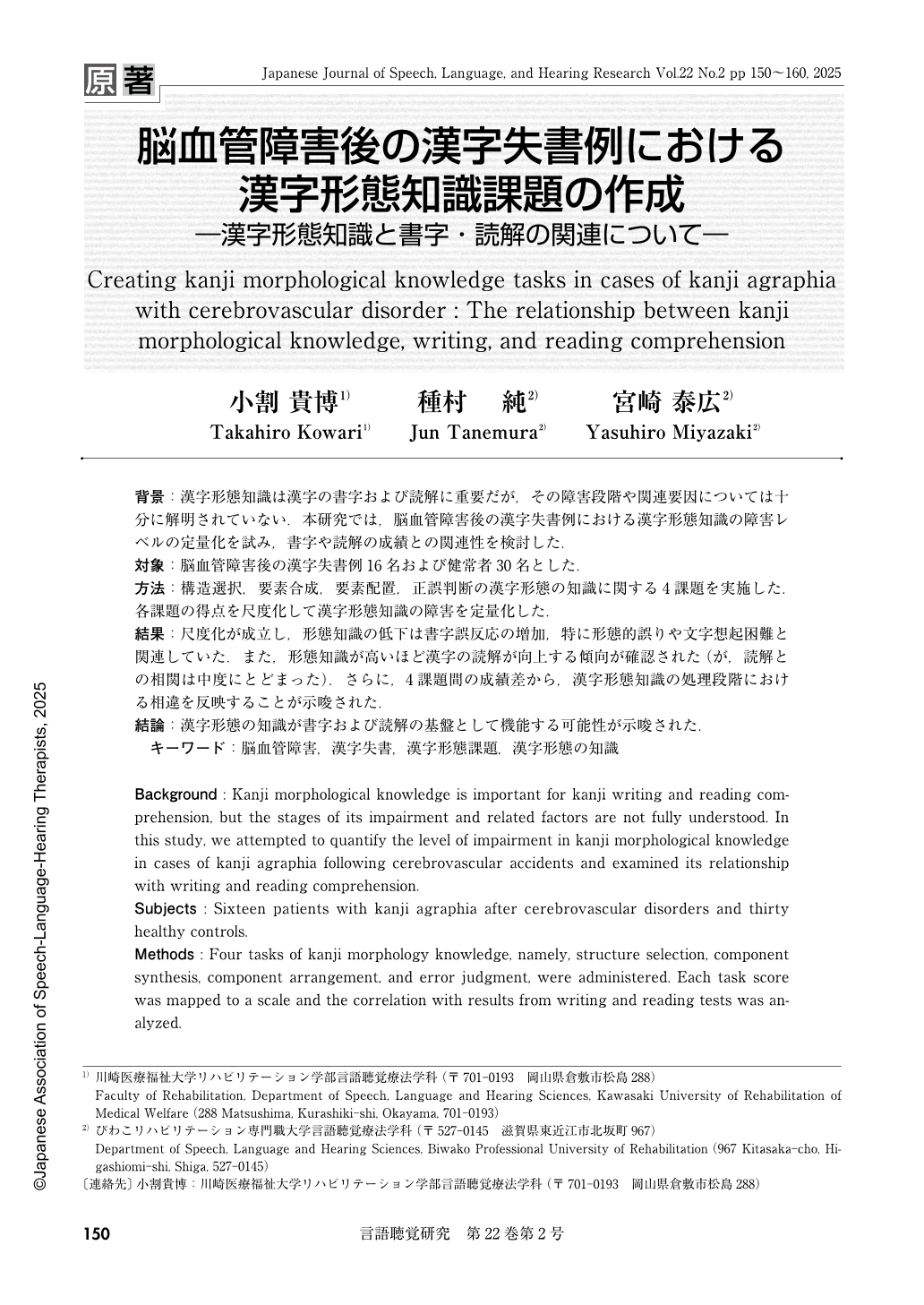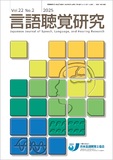Japanese
English
- 有料閲覧
- Abstract 文献概要
- 1ページ目 Look Inside
- 参考文献 Reference
背景:漢字形態知識は漢字の書字および読解に重要だが,その障害段階や関連要因については十分に解明されていない.本研究では,脳血管障害後の漢字失書例における漢字形態知識の障害レベルの定量化を試み,書字や読解の成績との関連性を検討した.
対象:脳血管障害後の漢字失書例16名および健常者30名とした.
方法:構造選択,要素合成,要素配置,正誤判断の漢字形態の知識に関する4課題を実施した.各課題の得点を尺度化して漢字形態知識の障害を定量化した.
結果:尺度化が成立し,形態知識の低下は書字誤反応の増加,特に形態的誤りや文字想起困難と関連していた.また,形態知識が高いほど漢字の読解が向上する傾向が確認された(が,読解との相関は中度にとどまった).さらに,4課題間の成績差から,漢字形態知識の処理段階における相違を反映することが示唆された.
結論:漢字形態の知識が書字および読解の基盤として機能する可能性が示唆された.
Background:Kanji morphological knowledge is important for kanji writing and reading comprehension, but the stages of its impairment and related factors are not fully understood. In this study, we attempted to quantify the level of impairment in kanji morphological knowledge in cases of kanji agraphia following cerebrovascular accidents and examined its relationship with writing and reading comprehension.
Subjects:Sixteen patients with kanji agraphia after cerebrovascular disorders and thirty healthy controls.
Methods:Four tasks of kanji morphology knowledge, namely, structure selection, component synthesis, component arrangement, and error judgment, were administered. Each task score was mapped to a scale and the correlation with results from writing and reading tests was analyzed.
Results:A Guttman scale was created, and analysis of results from the scale revealed that a decrease of scaled scores in morphological knowledge was associated with a significant increase in writing errors, particularly morphological errors and difficulties in recalling kanji characters. Additionally, higher levels of morphological knowledge were associated with improved kanji comprehension, though the correlation with comprehension was moderate. Furthermore, differences in scaled scores seemed to reflect the difference of processing stages of kanji morphological knowledge.
Conclusion:It was suggested that kanji morphological knowledge may serve as a foundation for both writing and reading comprehension.

Copyright © 2025, Japanese Association of Speech-Language-Hearing Therapists. All rights reserved.


